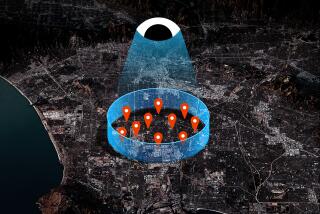Handwriting Not the Best for Wills
- Share via
Question: It is my understanding that a will written by hand, in ink and on legal pad paper is effective in the state of California. Is my information correct? If not, what is the simplest personal will that a person might create for themselves?--E.J.R.
Answer: This question is typical of several I received from readers after my recent columns about the statutory “fill-in-the-blanks” will. Rather than fill in the blanks, which can be confusing, some readers apparently prefer handwriting their own will and want to know whether such a will is valid in California.
The simple answer is yes. They are known as “holographic” wills. They are enforceable in California--but not in every state--provided that the will is written, dated and signed entirely in your own hand. You don’t have to use legal pad paper as this reader suggests, but the paper you start with should be blank. There should be no typewriting or printing on it at all.
The holographic will must clearly indicate that it is a will and that you are setting forth your wishes with respect to the distribution of your property upon your death.
Holographic wills need not be witnessed--that is, signed by someone who watches you sign the will, as is required in other wills.
Handwritten wills can sometimes face a difficult reception in probate court, especially if someone is challenging their validity. For example, phrases used by a lay person may be ambiguous or contrary to law, which could make the will unenforceable. (Of course, this all assumes that the handwriting is legible, which could be another potential problem.)
Take the case of Frank Blain, a California man who died in 1953. A court acknowledged that he wanted to leave his $115,000 estate to his niece and other friends and relatives, but then the court awarded all of it instead to his granddaughter.
Blain had not mentioned his granddaughter in his holographic will, the court said, because he thought that she had inherited enough from other relatives. But because he failed to mention his granddaughter, she was entitled to inherit his entire estate. The law required that any children or children of deceased children be specifically named if they were being left out intentionally.
The court noted that Blain “knew just enough about probate law to think that he could safely prepare his own will . . . he saved an attorney’s fee amounting to perhaps $10 and caused a loss to his (heirs) of well over $100,000”
If your estate is very simple, you might consider a holographic will. But I wouldn’t encourage it in most circumstances.
More to Read
Inside the business of entertainment
The Wide Shot brings you news, analysis and insights on everything from streaming wars to production — and what it all means for the future.
You may occasionally receive promotional content from the Los Angeles Times.










